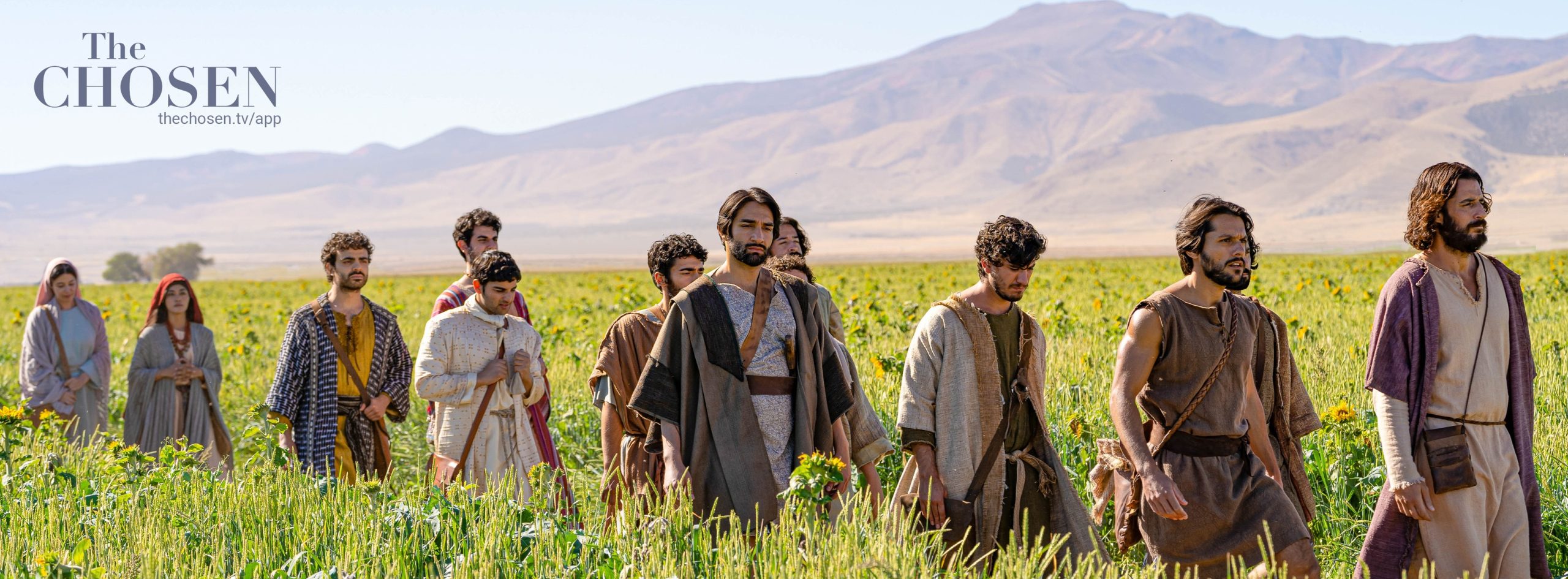
by Michelle Bauman
Last night, we watched another episode of The Chosen. I’m not a big fan of televised reenactments of the Bible typically; they often seem forced and implausible. Jesus is either reduced to a single-faceted, flat character with superpowers, or He is turned into an allegorical figure meant to model good living rather than a flesh-and-blood human being.
The thing is, we know neither of those portrayals of Jesus is true. The Bible tells us that He was fully human. Jesus became tired; He grew sad. He needed a mother; He desired friends. Jesus contemplated the future, experienced pain and suffering, and felt the soul-satisfying gift of a meal with family and friends. Jesus mourned. Jesus loved. Jesus laughed. The Chosen portrays the humanity of Christ well.
However, while viewing last night’s episode, it wasn’t Christ’s humanity, but our own fallen one, that caused reflection. You see, one of the characters who had been rescued from her brokenness in an earlier episode returned to it last night. Filled with fear and memories of trauma, she embraced harmful coping mechanisms; she cloaked herself in the darkness of her own sins and hid from the healing light and love of Christ. How many of us have done the same? How many of us, in a moment of weakness, have reclaimed the sins and harmful habits we were sure we had left behind? In all honestly, it didn’t take many Lenten reflections to recognize that she was me.
Something remarkable happened to her though. Because she would not, could not, return to Jesus, her friends found her and brought her to Him. In love, they met her in her fallen state, cared for her, and walked her back to Christ—the true and present means of grace and forgiveness. And when she was brought before Jesus, shame-filled and guilt-ridden, another remarkable thing happened. She was freely and fully forgiven.
The Lenten season is a time of reflection, a time to recognize the seriousness of our own sins. Like Paul, we confess “that nothing good dwells in me … For I do not do the good I want, but the evil I do not want is what I keep on doing” (Romans 7:18-19). But Paul also has a word of hope for sinners like you and me: “God shows his love for us in that while we were still sinners, Christ died for us” (Romans 6:8).
We’ve done nothing to earn God’s love. He gives it freely. And because He loves us, He is at work in our lives, creating, redeeming, and calling us to Him. Through the work of the Holy Spirit, and very often those around us, we are both brought to repentance and gifted the opportunity to walk alongside others, upholding their lives and pointing them to Him. God’s work is indeed remarkable. May we rejoice in it this Lenten season and always.